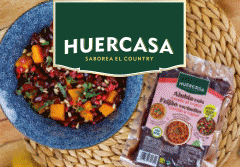The proliferation of producers is making Spanish grown avocados become blurred and consumers do not associate them with the territory
More and more competitors are appearing for Spanish avocados, and part of the winter niche it had is being lost. According to José Francisco Novo, sales manager at Novofrut, the Hass variety is beginning to experience competition problems and it is being pushed out in favour of third party productions. “80% of avocados sold here are not produced nationally and we can see this even in the large capital cities.” There used to be a larger gap, but Peru is about to start producing all year round, Colombia is a new player that coincides with our dates, and Mexico is opening up new horizons and promoting its exports to destinations other than its main client, the USA. Chile, the Dominican Republic and Morocco are also increasing their volumes, although, in the case of Morocco, the quality is not comparable to the others. Its main fault is “the lack of professionalism in the handling process.”
“The same is happening with kiwis. Brands are becoming more important than the source,” Novo affirms. Along with the undifferentiated image problem, the price factor is also added, with variations due to the growing number of operators, as well as possible problems in the fields or drops in production due to alternate fruit bearing years. “We are forced to adapt ourselves, but the problem is that here we have much higher labour and supply costs, such as for water, which according to the different regions in Spain costs up to 0.40€/m³. Only the future will tell.”
Would ecological crops be the solution to getting better prices? For Novo, the answer is not too clear, because other sources are also opting for bio crops.
But although this is happening in the avocado segment, there is no competition for custard apples, with the Fino de Jete variety dominating the market on its own. “Demand is growing all the time. This year, in spite of having volumes similar to last campaign’s, we have had prices that are up to 20% higher.” The bio version is becoming more and more popular and in Novofrut’s case, the volume of bio custard apples already takes up 30% of its total ecological production. “This product must be promoted more, because it really is what distinguishes us.”





















